Buy High Risk Clients: Effectively Handle Five of the Most Critical Scenarios Youll Face as a Clinician – Paul Brasler Course at GBesy. We actively participate in Groupbuys and are committed to sharing knowledge with a wider audience. Rest assured, the quality of our courses matches that of the original sale page. If you prefer, you can also buy directly from the sale page at the full price (the SALEPAGE link is directly provided in the post).
Salepage link: At HERE. Archive:
$199.99 $60 – High Risk Clients: Effectively Handle Five of the Most Critical Scenarios Youll Face as a Clinician – Paul Brasler
Crises are never scheduled, convenient or easy. But they do happen and you will face them. Clients at risk for crisis often present with so many symptoms and issues, it’s hard to know where to start. Many clinicians, anxious about how to proceed, often miss or avoid asking the right questions to effectively intervene and keep clients (and themselves) safe.
As a clinician, have you ever felt:
- Worried about the safety of your clients, even feared for their lives, but felt unprepared to handle the situation?
- Unsafe in the clinical environment, or unsure of how to handle situations where someone connected to your client might be in danger?
- Caught off guard when you’re wrapping up a session and a client discloses suicidal thoughts?
- Unsure if a client was using drugs, and ill equipped to identify the signs and symptoms of drug abuse?
- Concerned that you’re doing more harm than good for traumatized clients, despite your best intentions?
In this recording, Paul Brasler, LCSW, navigates you through five of the most difficult scenarios in mental health today. Through real-life examples and live role plays, Paul will share the concrete strategies that he’s used over the last two decades to safely and effectively intervene in the challenging, urgent, and sometimes alarming situations that mental health professionals face. Full of practical tools and tips, this recording will teach you to how to make crises situations more manageable, overcome your worries, and improve your readiness to handle mental health emergencies related to suicide, violence, substance abuse, trauma, and medical issues.
Better still, instruction on professional liability management techniques, tips for documentation, and detailed reproducible assessment forms will have you feeling confident that you can focus on doing what’s best for your clients without fear of litigation. And, Paul’s guidance is applicable to your work regardless of your setting or clinical background.
You’ll be left feeling equipped to help your most vulnerable clients with the real-life skills and knowledge they don’t teach in graduate school!
- Complete a comprehensive mental health assessment that encompasses a multitude of clinical concerns including mental status, lethality, substance abuse and trauma.
- Identify signs of and risk factors for suicidal ideation in clients and effectively respond in order to ensure the safety of the client.
- Recognize indicators of substance intoxication, withdrawal and overdose in clients and establish protocol for responding appropriately.
- Assess for risk of violence in a clinical setting and develop skills to effectively and safely intervene during an acute crisis.
- Examine ways in which client responses to trauma are often misdiagnosed as mental health disorders and consider the clinical implications of this.
- Create accurate and comprehensive documentation of clinical crises to protect all.
- Client Assessment: Ask the Right Questions
- Conduct comprehensive assessments
- Mini mental status exam
- Lethality assessment: Suicide and homicide
- Substance use assessment
- Trauma assessment
- Tips and strategies for eliciting the right information
- Conduct comprehensive assessments
- The Suicidal Client: More than 13 Reasons Why
- High-risk populations—who is most at risk?
- Implicit and explicit expressions of suicidal ideation and intent
- Self-injurious behavior and suicidal ideation
- Suicide assessment and interviews: Ideation, plans, means, intent
- What do I do now? —Disposition & safety planning
- Why “No-Harm Contracts” are harmful
- Breaking client confidentiality
- When in doubt, do what?
- Hospitalization process
- After the ER: When clients are not admitted
- Case studies:
- Michelle—Teenagers experiencing suicidal ideation
- William—The intersection of substance use, mental illness and suicidality
- The Violent Client: Manage Dangerous Situations
- Dealing with our fears: Clinicians’ safety concerns
- When the clinician is the target
- When others are the target
- De-escalation techniques
- Preventative planning
- Office layout
- Keeping good boundaries
- Police involvement before a crisis
- Safety planning
- When to call 911
- Hospitalization process
- Duty to warn
- Case studies:
- George—Handle a violent client
- Dale—Practice Duty to Warn
- The Addicted Client: What ALL Clinicians Need to Know
- How misdiagnosis harms clients
- Signs of intoxication
- Imminent risk: Signs and symptoms of overdose
- Identify withdrawal syndromes
- Accurate diagnosis and treatment matching
- Drug basics that clinicians should know:
- Opioids and the opioid crisis (heroin, fentanyl and emerging drugs)
- Stimulants (cocaine, “bath salts,” methamphetamine)
- Cannabinoids (“shatter,” spice)
- Other chemicals (DXM, “Special K,” Ayahuasca)
- When and how to refer to a higher level of care
- Case studies:
- Percy—Opioid crisis in the waiting room
- Cathy—Bipolar Disorder? Think again
- The Traumatized Client: Help Without Hurting
- Recognize trauma in clients
- The risk of misdiagnosis
- Dangers of improper treatment
- Strategies for trauma-informed care
- First and foremost: Safety inside and outside the clinic
- The role of mindfulness
- Go slow…but go
- Understand Levels of Safety
- Triune Brain Model and trauma
- Bereavement: Not always trauma
- The intersection of trauma, mental health, substance abuse and medical problems
- Case studies:
- Brian—Trauma missed
- Mick—“How deep can I bury this?”
- Medical vs. Psychiatric Problems: Limiting Harm
- “What Could Kill the Patient First?”
- Collaborative care with primary physician
- Medical emergencies that present with psychological symptoms
- Signs and symptoms: Limit client harm by recognizing a medical emergency
- Medication-Related Disorders
- Traumatic Brain Injury (TBI)
- Neurocognitive Disorders
- Other Neurological Illnesses
- Case studies:
- Steven and the Zombies—Organic disorders
- “Granny has schizophrenia!”
- High Risk Clinicians: After the Crisis
- Protect your license and manage liability
- Documentation: What you need to know
- Debriefing and supervision
- Vicarious trauma
- Addressing compassion fatigue
- Case study:
- Dave and me
-
Limitations and Potential Risks
- Limited controlled studies
- Seek supervision when necessary
- Weigh out risk of intervening versus not intervening
$199.99 $60 – High Risk Clients: Effectively Handle Five of the Most Critical Scenarios Youll Face as a Clinician – Paul Brasler
Buy the High Risk Clients: Effectively Handle Five of the Most Critical Scenarios Youll Face as a Clinician – Paul Brasler course at the best price at GBesy.. After your purchase, you will get access to the downloads page. You can download all the files associated in your order at here and we will also send a download notification email via your mail.
Unlock your full potential with High Risk Clients: Effectively Handle Five of the Most Critical Scenarios Youll Face as a Clinician – Paul Brasler courses. our courses are designed to help you excel.
Why wait? Take the first step towards greatness by purchasing High Risk Clients: Effectively Handle Five of the Most Critical Scenarios Youll Face as a Clinician – Paul Brasler courses today. We offer a seamless and secure purchasing experience, ensuring your peace of mind. With our trusted payment gateways, Stripe and PayPal, you can confidently complete your transaction knowing that your financial information is protected.
Stripe, known for its robust security measures, provides a safe and reliable payment process. With its encrypted technology, your sensitive data remains confidential throughout the transaction. Rest assured that your purchase is protected.
PayPal, a globally recognized payment platform, offers an additional layer of security. With its buyer protection program, you can feel confident in your purchase. PayPal ensures that your financial details are safeguarded, allowing you to focus on your learning journey.
Is it secure? to Use of?
- Your identity is completely confidential. We do not share your information with anyone. So it is absolutely safe to buy the High Risk Clients: Effectively Handle Five of the Most Critical Scenarios Youll Face as a Clinician – Paul Brasler course.
- 100% Safe Checkout Privateness coverage
- Communication and encryption of sensitive knowledge
- All card numbers are encrypted using AES at relaxation-256 and transmitting card numbers runs in a separate internet hosting atmosphere, and doesn’t share or save any data.
How can this course be delivered?
- After your successful payment this “High Risk Clients: Effectively Handle Five of the Most Critical Scenarios Youll Face as a Clinician – Paul Brasler course”, Most of the products will come to you immediately. But for some products were posted for offer. Please wait for our response, it might take a few hours due to the time zone difference.
- If this happens, please wait. The technical department will process the link shortly after. You will receive notifications directly by e-mail. We appreciate your wait.
What Shipping Methods Are Available?
- You will receive a download link in the invoice or YOUR ACCOUNT.
- The course link always exists. use your account to login and download the High Risk Clients: Effectively Handle Five of the Most Critical Scenarios Youll Face as a Clinician – Paul Brasler course whenever you need.
- You only need to visit a single link, and you can get all the High Risk Clients: Effectively Handle Five of the Most Critical Scenarios Youll Face as a Clinician – Paul Brasler course content at once.
- You can do your learning online. You can be downloaded for better results and can study anywhere on any device. Make sure your system does not sleep during the download.
How Do I Track Order?
- We always notice the status of your order immediately after your payment. After 7 days if there is no download link, the system will automatically complete your money.
- We love to hear from you. Please don’t hesitate to email us with any comments, questions and suggestions.
![GBesy [GB] GBesy [GB]](https://www.gbesy.com/wp-content/uploads/2023/05/gbesy-Logo-full-100.png)
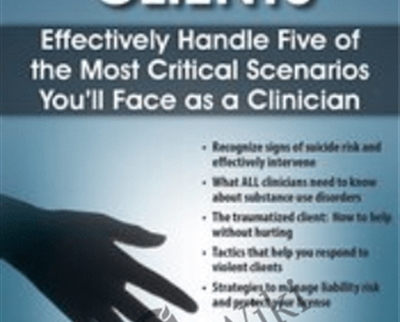


 Purchase this course you will earn
Purchase this course you will earn 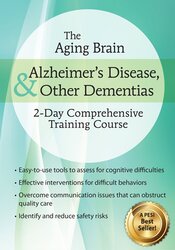
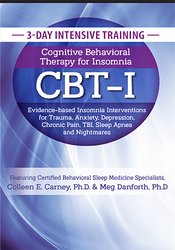
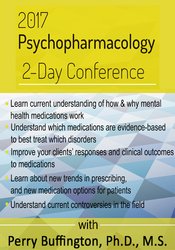
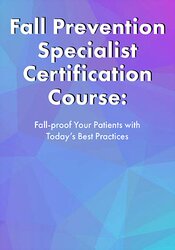


Reviews
There are no reviews yet.